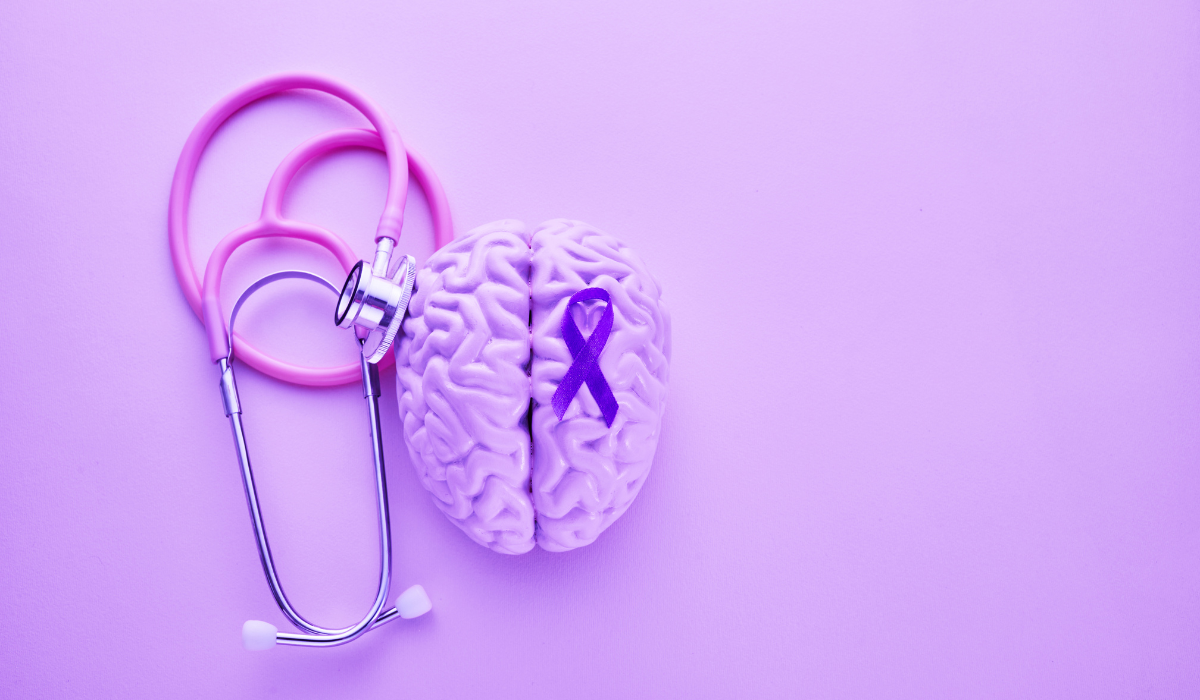Alzheimer’s Disease Is Something All of Us Worry About as We Age. Here’s the Newest Thinking on Prevention
For too long, too many of us—doctors included—didn’t think Alzheimer’s disease was preventable. We assumed our genes were our destiny, and that if cognitive decline ran in the family, there wasn’t much we could do about it.
Thankfully, we know better now. There’s indisputable research showing there are many things each of us can do to protect our brain health.
“We know that about 40 percent of current cases of dementia and Alzheimer’s disease could have been prevented if we’d known decades ago how lifestyle contributed to risk,” says Jessica Caldwell, PhD the Director of the Women’s Alzheimer’s Movement Prevention Center at Cleveland Clinic. “Now, the science supports that doing things like not smoking, not drinking too much, avoiding diabetes, and taking other steps are so important when it comes to how our brains age.”
So, what are some of those steps each of us can take to reduce our risk? Dr. Caldwell sat down with The Sunday Paper to fill us in.
A CONVERSATION WITH JESSICA CALDWELL, PHD
Alzheimer’s disease is something so many of us worry about as we age. What would you say to people reading this who fall into that camp?
We now know that even if you have people in your family with Alzheimer’s disease, that doesn’t guarantee that you will get it. What’s more, we know that about 40 percent of current cases of dementia and Alzheimer’s disease could have been avoided—and we know how they could have been avoided. So, there’s no reason to be paralyzed by this fear. You’ve got to take what we know now and do everything you can to be in that lucky 40 percent.
What are some of the things we know can lower the risk of dementia and Alzheimer’s disease?
We know that not finishing high school is a direct risk for dementia and Alzheimer’s disease. That might seem a little confusing because it’s something that happens so early in life. How could doing something in your teens protect you later?
One of the things we know is that building cognitive reserve helps people later in life, when you may have a disease process going on in your brain. Cognitive reserve is the idea that the more you learn—the more you use your brain and continue to learn throughout your life—the more neurons and neural pathways you have in your brain. So, if you have a disease that comes into your brain later in life, your brain is better able to withstand that change and hopefully stave off symptoms longer. This is why we talk about education and encourage people to stay cognitively active. Don’t just let your mind kind of sit and be sedentary, similarly to how you don’t want to let your body sit and be sedentary.
We also know if you don’t exercise, that’s a direct risk for dementia. And we know women are twice as likely as men to not exercise. There are several direct effects of exercise on the brain, and it also has all sorts of indirect brain effects, such as improving sleep and mood, and decreasing stress.
Sleep is another important factor. If you’re not sleeping, it’s going to do a few things. First, it’s going to impact your day-to-day memory. Second, it’s going to prevent your brain from clearing debris on a regular basis. And third, it’s going to make it harder to engage in healthy behaviors if you’re not getting a good night’s sleep. I think of sleep as almost an entry hurdle that can keep people out of a prevention lifestyle.
Can you geek out for a moment on how we clear debris from our brains when we sleep—and what that debris is exactly?
When we’re sleeping—and only during certain stages of our sleep—our brain clears debris. One of the types of things it clears is amyloid, the protein that builds up in unhelpful ways in Alzheimer’s disease. When we sleep, the brain takes that amyloid and other debris and moves it into our cerebrospinal fluid so it can exit the brain. We’re clearing all of that out of the brain nightly. It’s not that Alzheimer’s disease is a guarantee if we don’t do this nightly brain clearing. But for people who are at risk for Alzheimer’s disease, not getting enough sleep is essentially allowing a bigger burden on your brain.
Do we know the ideal dose of these lifestyle tactics that can help us prevent cognitive decline—or is the better tactic to just start doing something?
I would say both. You have to start somewhere. For folks who are not engaging in healthy behaviors, I would say start by moving your body and making sure you’re sleeping—and then build from there. It’s never too late or too early to start those healthy behaviors.
In some of the healthy behaviors, we have really clear guidelines. For example, we want you to at least finish high school. We want you to not smoke any cigarettes. Zero is the goal. With alcohol, more than seven drinks a week is a risk for Alzheimer’s disease. And with exercise, we want people to hit at least 150 minutes of moderate-intensity aerobic exercise per week—though that’s not to say that more isn’t better.
With these lifestyle and behavior changes, the goal should simply be to do what you can do. If there is kind of a recommended guideline, try to get yourself up to that guideline. And if you feel like you have room to do more, go ahead and do more.
When it comes to genetic testing to determine risk of Alzheimer’s disease, what’s the recommendation?
In general, the recommendation is that if you’re young and healthy, don’t get tested for APOE-e4. In our clinic, we recommend genetic testing if you have a family history of risk and you are interested in understanding that genetic risk in the context of all of your lifestyle risks. There are some people for whom knowing that genetic piece really helps them stay motivated. On the other hand, there are people who feel like knowing their genetic risk wouldn’t be helpful and would make them anxious. For folks who feel it won’t help in their overall understanding of risk, we don’t recommend genetic testing.
We know that Alzheimer’s disease disproportionately impacts women. What would you say to a woman reading this who is worried about this fact? As women, do we need to step up our game a little more because we make up two-thirds of cases?
The most important thing I want women to understand about their disproportionate risk of Alzheimer’s disease is that it can be a wake-up call to take care of yourself. You have to be on your own priority list. If you spend the entirety of your mid-life—say, age 30 to 60—only taking care of other people, you are not positioning yourself to age well after 60.
Women’s health in mid-life is all too often neglected. What do you want those of us in our 30s, 40s, and 50s to know about protecting our brain health?
Awareness is key. It’s important to know that the average age of menopause is around 51, which means you could have symptoms that happen before that—not just changes in your menstrual cycle or hot flashes, but memory changes, brain fog, or shifts in your mood or anxiety. It’s very important to educate yourself on what menopause is before you go through it.
Also, don’t avoid the gynecologist for 10 years and then go only when you have a symptom! You’ll want to connect with a women’s health doctor who can help you navigate the health changes that can happen in mid-life. That’ll be your best bet in terms of making sure you’re up to speed on the recommendations, which are rapidly changing when it comes to menopausal hormone therapy because the research is advancing at a very rapid pace.
You’ve studied sex differences in brain health your entire career. Are you hopeful that we’re catching up and starting to better understand women’s health in more detailed ways?
There has been an explosion of research on sex differences in recent years. I do feel hopeful about the future of Alzheimer’s disease and women’s risks. We now have so many great people at the table doing this work, and I only see that growing in terms of trainees who come in and they’re excited about this work and want to specialize in it.
But at the same time, I think we are going to have to keep pushing this field. Looking at sex differences in women is a change, and Maria Shriver and The Women’s Alzheimer’s Movement have been a big part of that change. But even if you turn the tide, you’ve got to keep pushing so that the whole field understands the importance of looking at these sex-specific factors.
Jessica Caldwell, PhD, ABPP/CN, is the director of the Women’s Alzheimer’s Movement Prevention Center at Cleveland clinic. Dr. Caldwell is passionate about studying sex differences in Alzheimer’s disease and addressing these differences in the real world. Her clinical neuropsychology work focuses on assessing women at risk for dementia as well as adult and geriatric patients with concerns of memory loss. Her research examines the ways that Alzheimer’s disease development and brain impact differs in men and women, and also explores Alzheimer’s prevention approaches in women.
Please note that we may receive affiliate commissions from the sales of linked products.



